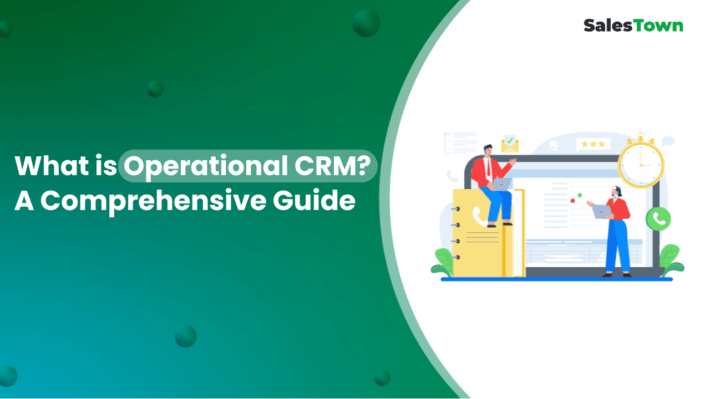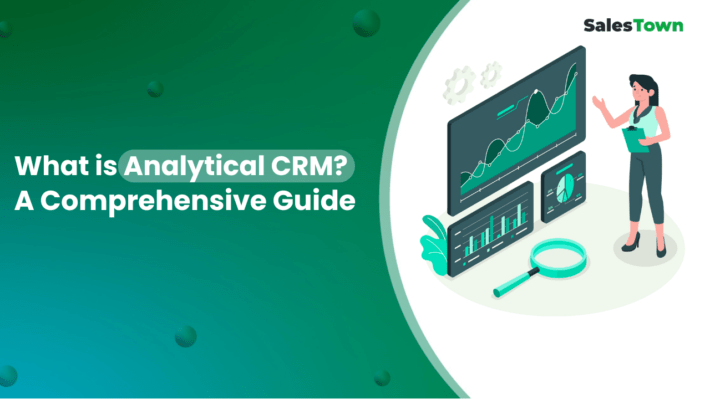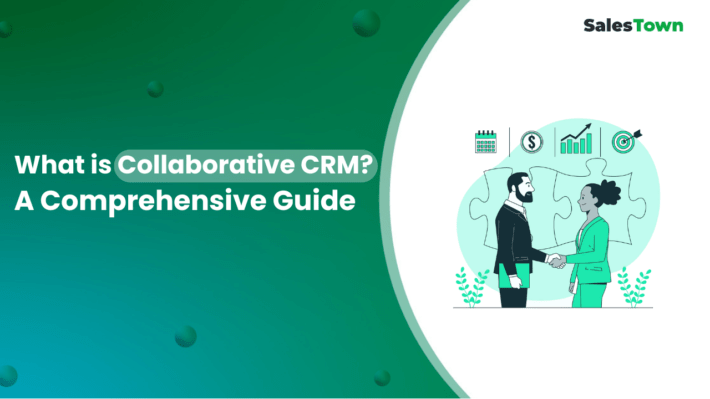3 Types of CRM – Operational, Analytical, Collaborative
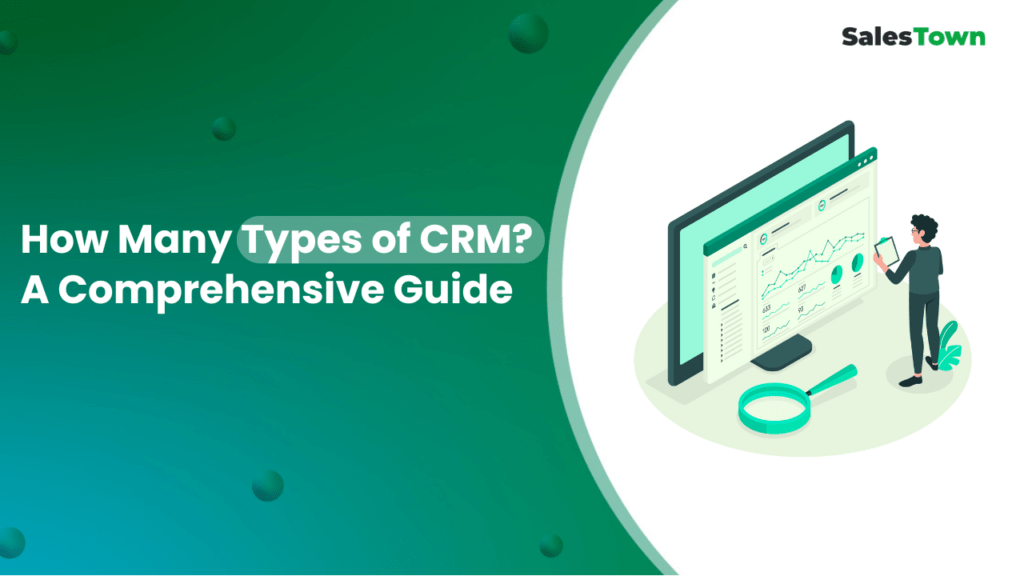
In today’s competitive business landscape, Customer Relationship Management (CRM) systems have become essential tools for companies of all sizes. But with so many options available, it’s crucial to understand the different types of CRM and how they can benefit your organization. In this comprehensive guide, we’ll explore the various types of CRM systems, their features, and how Salestown CRM can help you leverage these capabilities to drive growth and improve customer satisfaction.
What is CRM and Why is it Important?
Before diving into the types of CRM, let’s briefly discuss what CRM is and why it’s crucial for businesses:
CRM, or Customer Relationship Management, is a strategy and technology used to manage and analyze customer interactions and data throughout the customer lifecycle. The primary goal of CRM is to improve business relationships, streamline processes, and increase profitability.
A robust CRM system helps businesses:
- Centralize customer data
- Improve customer service
- Enhance sales processes
- Boost marketing effectiveness
- Increase customer retention
- Make data-driven decisions
Now that we understand the importance of CRM, let’s explore the main types of CRM systems available.
The 3 Main Types of CRM Software
While there are various ways to categorize CRM systems, most experts agree on three primary types:
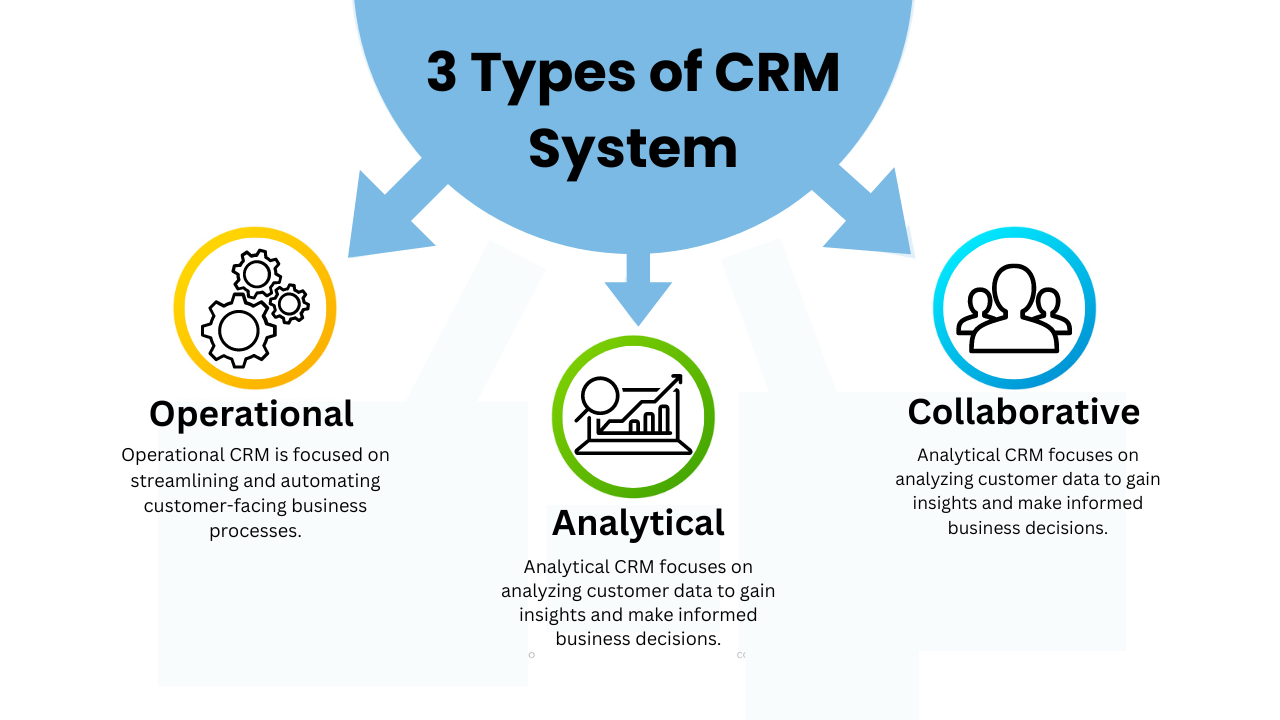
Let’s take a closer look at each of these types and how they can benefit your business.
1. Operational CRM
Key Features of Operational CRM
- Marketing Automation: This helps you send out targeted marketing campaigns. For example, you can send personalized emails to customers based on their past behavior. If someone bought a book on cooking, you can send them an email about a new cooking class.
- Sales Force Automation: This makes it easier for your sales team to manage leads and close deals. They can track interactions with potential customers, schedule follow-ups, and even close deals right from the CRM system.
- Customer Service and Support: Operational CRM helps your customer service team handle inquiries more efficiently. They can quickly access customer information, track support tickets, and resolve issues faster.
Benefits of Operational CRM
- Increased Efficiency: By automating repetitive tasks, your team can focus on more important things.
- Better Customer Experience: Customers get faster responses and more personalized interactions.
- Higher Sales: Your sales team can close deals faster and more effectively.
Real-World Example
👉 In Detail: What is Operational CRM?
2. Analytical CRM
Key Features of Analytical CRM
- Data Collection: This involves gathering data from various sources, like your website, social media, and customer interactions.
- Data Analysis: Using advanced analytics tools, you can identify patterns and trends in customer behavior. For example, you might find out that customers who buy a certain product are more likely to buy another specific product.
- Reporting and Dashboards: These tools help you visualize the data and make it easy to understand. You can see key metrics like customer satisfaction, sales trends, and more.
Benefits of Analytical CRM
- Informed Decisions: By understanding your customers better, you can make smarter decisions about marketing, product development, and more.
- Personalized Experiences: You can tailor your offerings to meet the specific needs and preferences of your customers.
- Improved Customer Retention: By knowing what your customers want, you can keep them happy and coming back for more.
Real-World Example
👉 In Detail: What is Analytical CRM?
3. Collaborative CRM
Key Features of Collaborative CRM
- Shared Customer Information: All departments have access to the same customer data. This means everyone is on the same page.
- Communication Tools: These tools help teams communicate and collaborate more effectively. For example, you can have shared notes or chat features.
- Workflow Integration: Collaborative CRM integrates with your existing workflows, making it easy to pass information from one department to another.
Benefits of Collaborative CRM
- Unified Customer Experience: Customers get a consistent experience no matter which department they interact with.
- Improved Efficiency: Teams can work together more effectively, reducing delays and improving response times.
- Better Problem-Solving: When teams collaborate, they can solve problems more quickly and creatively.
Real-World Example
👉 In Detail: What is Collaborative CRM?
Choosing the Right Type of CRM for Your Business
With so many types of CRM available, it’s essential to choose the right one for your business needs. Here are some factors to consider when selecting a CRM system:
- Business goals and objectives
- Industry-specific requirements
- Size and complexity of your organization
- Budget and resources
- Integration capabilities with existing systems
- Scalability and flexibility
- User adoption and ease of use
Salestown CRM offers a comprehensive solution that combines elements from various CRM types, making it a versatile choice for businesses of all sizes and industries. Its modular approach allows you to start with the features you need most and scale up as your business grows.
Harnessing the Power of CRM for Your Business
Understanding the different types of CRM is crucial for selecting the right system to meet your business needs. Whether you’re looking for operational efficiency, data-driven insights, improved collaboration, or specialized features, there’s a CRM type that can help you achieve your goals.
Salestown CRM offers a powerful, all-in-one solution that combines the best features from various CRM types, including:
- Robust Operational CRM capabilities for streamlining processes
- Advanced Analytical CRM tools for data-driven decision-making
- Collaborative CRM features for improved teamwork and communication
- Strategic CRM elements for building long-term customer relationships
- Campaign Management CRM for optimizing marketing efforts
- Social CRM capabilities for leveraging social media engagement
By choosing Salestown CRM, you can harness the power of multiple CRM types in a single, user-friendly platform. This comprehensive approach allows you to improve customer relationships, boost sales, enhance marketing effectiveness, and drive overall business growth.
Ready to take your customer relationship management to the next level? Explore Salestown CRM’s features and see how our versatile solution can help your business thrive in today’s competitive landscape.

